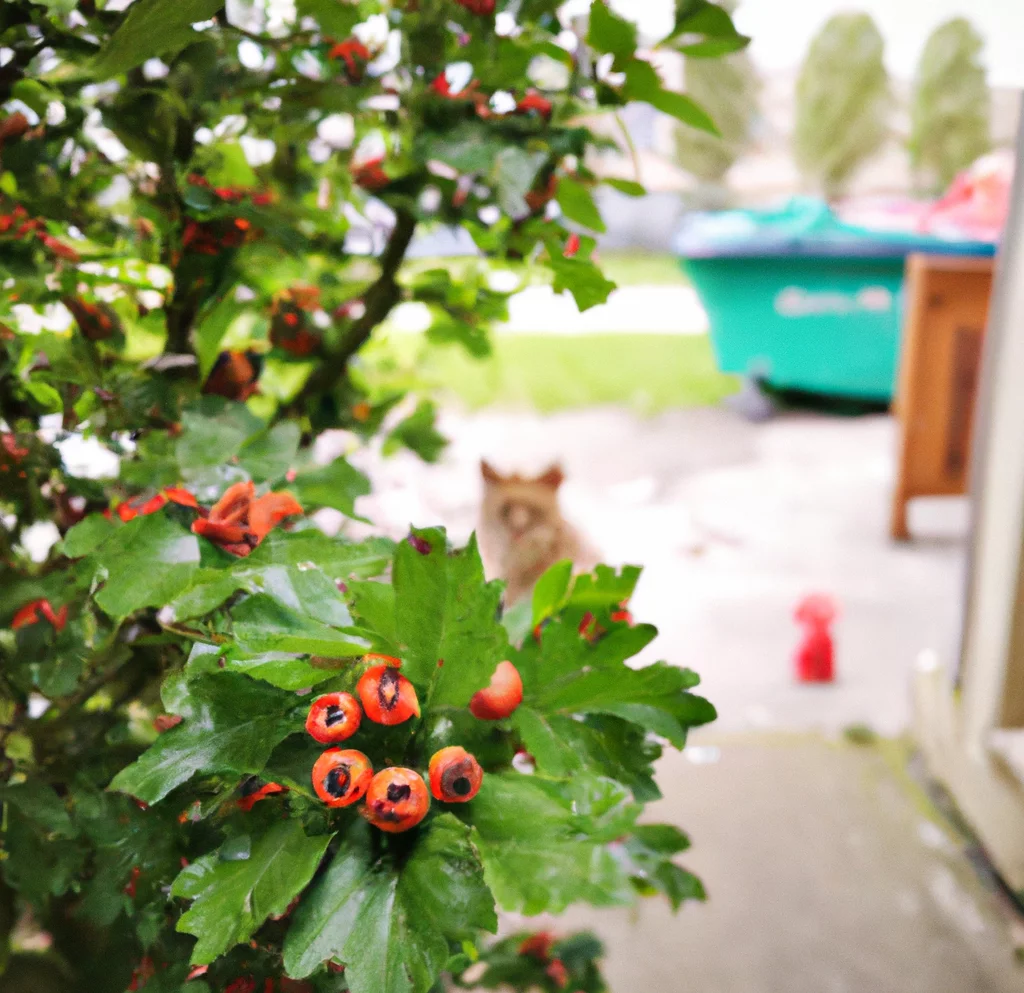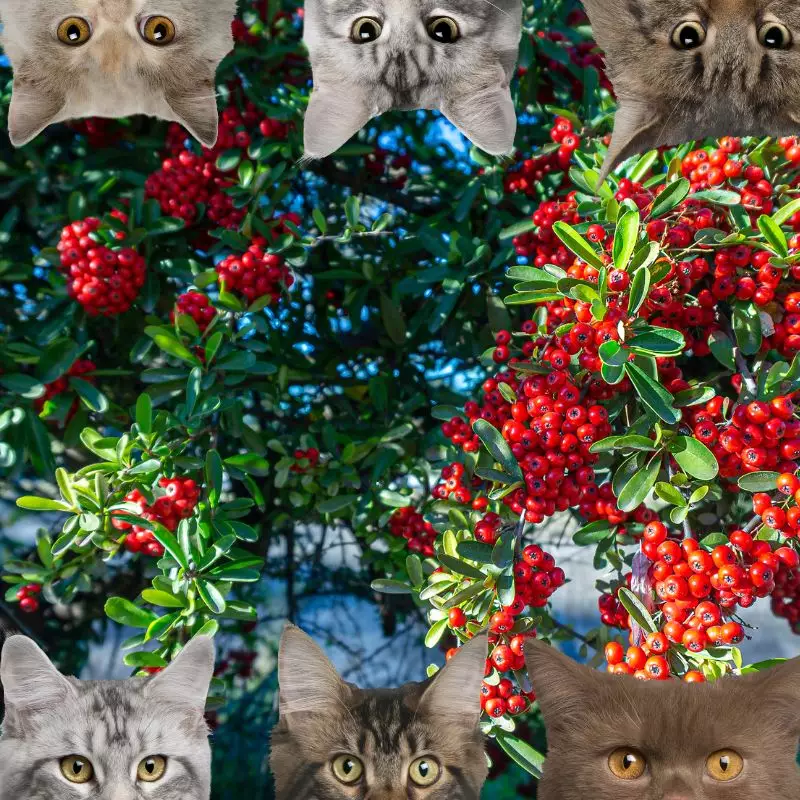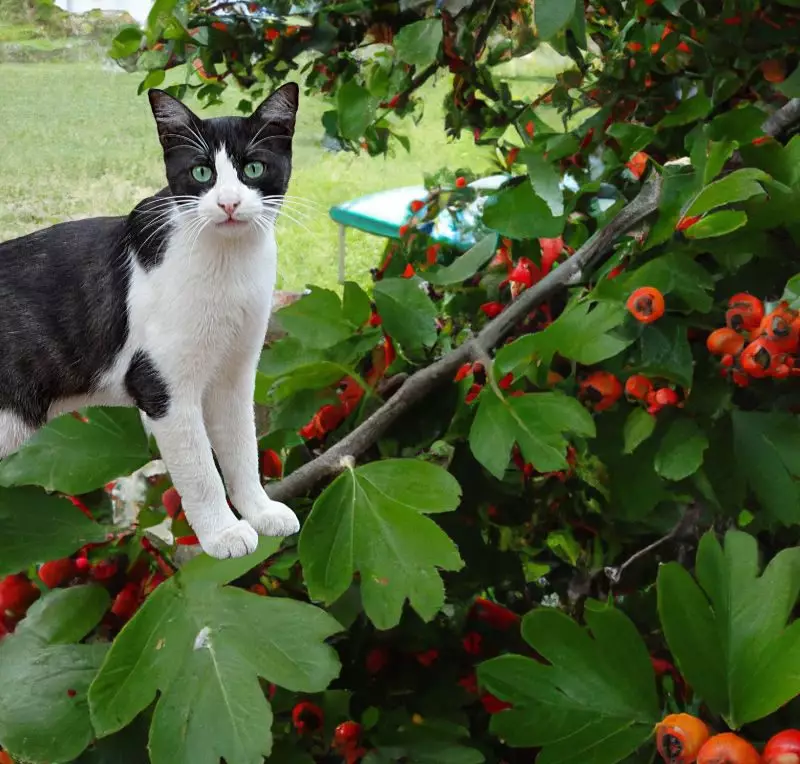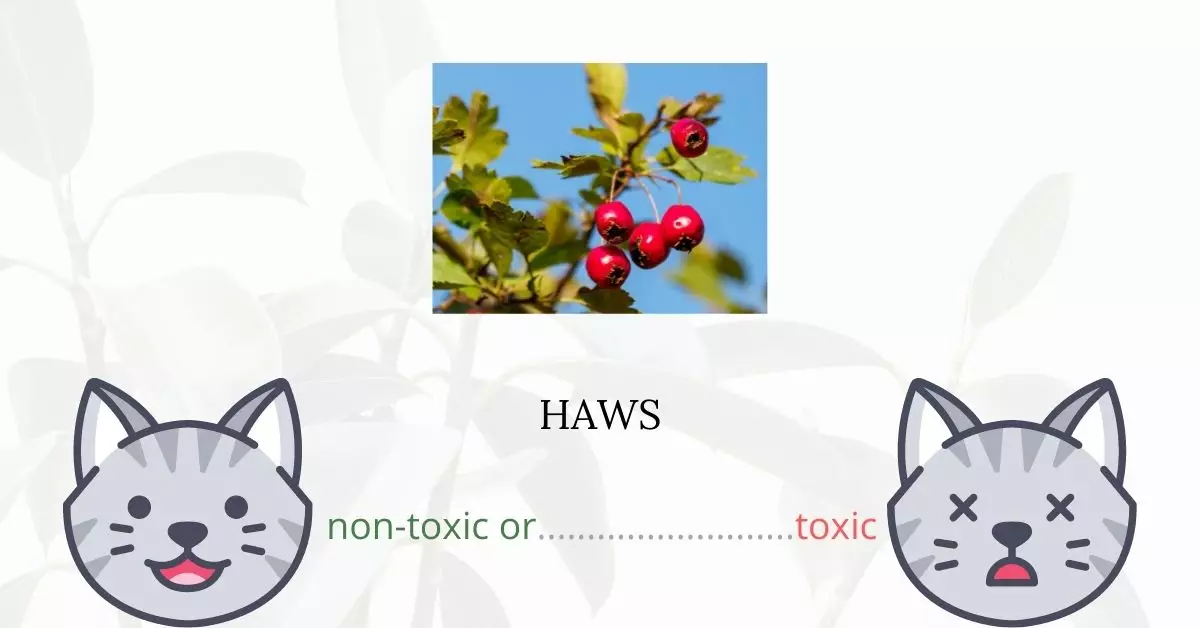Contrary to some beliefs, Haws, a member of the Rose Family, is not toxic for cats. In fact, it has been recognized as safe for feline consumption by reputable organizations such as The American Society for the Prevention of Cruelty to Animals (ASPCA).
To ensure the accuracy and reliability of this article, we collaborated with a team of experienced DVMs (doctors of veterinary medicine). Their invaluable insights and expertise, combined with thorough research from high-authority websites such as ASPCA and PetMD, provide up-to-date and precise information about the potential risks and benefits associated with various plants, including Haws, and their effects on cats.
Can Cats Eat Haws?

A fruit that is safe to eat in moderation is undoubtedly okay. Nevertheless, it is worth noting that some fruits are unhealthy for cats with specific medical issues, therefore it is always crucial to consult with your veterinarian before introducing any new foods into your pets’ diet.
When giving your kitty any new food, keep a tight eye on them. Cut portions into small, manageable pieces that won’t put your cat in danger of choking.
What is Haws?

Haws, the name for the hawthorn fruit, can be consumed raw, but they are more frequently processed into jellies, jams, syrups, or wine, or they can be used to flavor whiskey. They are technically pomes, but they resemble berries in appearance.
Haws is a small, oblong fruit that ripens red and is shaped like a little olive or grape. It belongs to the same rose family as many of the cultivated fruits we eat throughout the warm months, including apples, pears, plums, cherries, peaches, and apricots.
Although they do best in a well-drained yet moisture-retentive loamy soil, they can also thrive in heavy clays and extremely calcareous soils. Various species range in size from tiny shrubs that are 7 feet tall to quite huge trees that are 30 feet or taller. On their branches, the majority of species grow thorns, some of which can grow to be 2 inches or longer.
Keeping Cats Away From Haws

An efficient all-natural cat deterrent is mulching with gravel. To make your flowerbeds much less inviting for cats to walk on, sprinkle gravel or stone chips among them.
Plants like lavender and rosemary can be introduced to help deter cats. Lavender not only makes a gorgeous addition to your garden’s color scheme and aroma, but it also works well as a natural cat deterrent.
Scattering orange or lemon peels on the ground is another fantastic homemade cat deterrent idea. With these leftover fruit peels, you can deter cats from digging in your flowerbeds since they don’t enjoy citrus fruits.
Plants to Avoid For Your Cats
If you are a cat owner and unsure if the plants growing in your yard are harmful to your cats, check out this list of toxic plants for cats. You can also check our list of non-toxic plants for cats.





